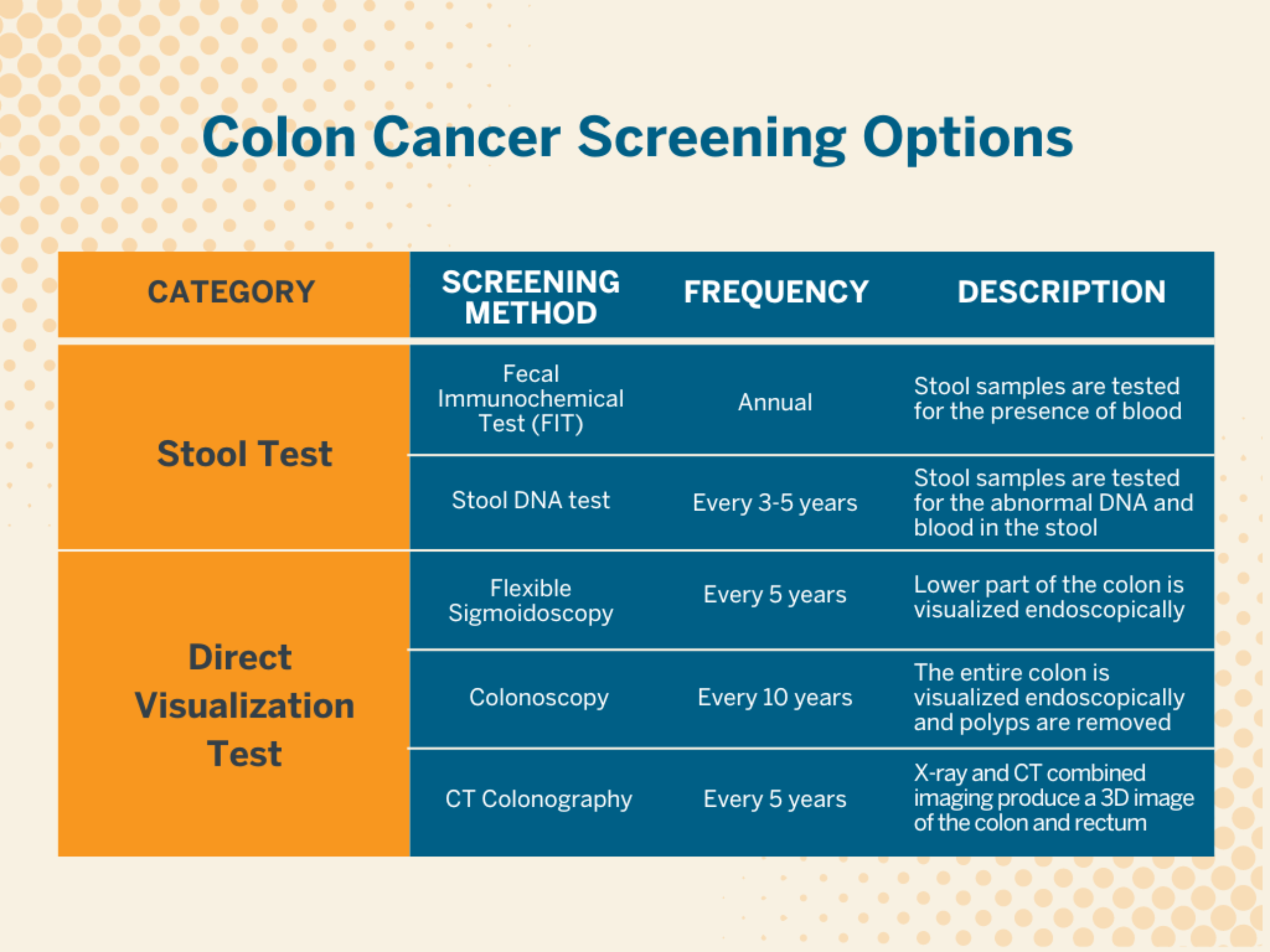Is It Time to Get Screened for Colorectal Cancer?
UT Health Austin gastroenterologists break down the latest guidelines
Reviewed by: Deepak Agrawal MD, MPH, and Kavitha Kumbum, MD
Written by: Lauren Schneider

The time for your first colorectal cancer screening may be closer than you think. As of last summer, the United States Preventive Services Task Force (USPSTF) recommends that all adults over 45 undergo regular screening. Previous USPSTF guidance published in 2016 recommended that screening begin at age 50.
“These recommendations follow evidence suggesting colorectal cancer is on the rise in patients under the age of 50,” says Kavitha Kumbum, MD, a UT Health Austin gastroenterologist in Digestive Health, a clinical partnership between Ascension Seton and UT Health Austin. The exact cause of this increased incidence is unclear, but Dr. Kumbum suggests that changes in lifestyle, environmental factors, and alterations in the gut microbiome may each play a role.
UT Health Austin gastroenterologist Deepak Agrawal, MD, MPH, recommends that people with a history of colorectal cancer in their immediate family (parents or sibling) start screening even sooner. “These individuals should be screened either when they are 10 years younger than the age at which their family member was diagnosed or at age 40,” explains Dr. Agrawal.
Screening Options to Fit Your Needs
Digestive Health offers many options for detecting colorectal cancer, and the method you choose will dictate how frequently you should be screened. Individuals with a personal or family history of colorectal cancer or colon polyps may require screening more often.

Both gastroenterologists emphasize the advantages that colonoscopy has over other methods. “Colonoscopy is a cancer prevention tool as well as a screening tool,” says Dr. Agrawal. “While the other tests can detect colorectal cancer at a very early stage, during a colonoscopy a doctor can identify and remove polyps which may become cancerous in the future.” Further, if the colonoscopy is normal, then no tests are needed for ten years.
Dr. Agrawal adds that screening colonoscopies are more accessible than ever. In the past, if a polyp was detected and removed during the procedure, it would be reclassified as a diagnostic colonoscopy and the patient would be responsible for a copay. The U.S. Department of Labor released a statement in January clarifying that for all insurance policies beginning on or after May 31, 2022, patients should not share costs for colonoscopies performed in accordance with the USPSTF guidelines.
The Colonoscopy, Demystified
“There are lots of misconceptions and anxieties surrounding colonoscopy, but the experience is not as difficult as some people may think It is,” says Dr. Kumbum.
Before
“Approximately about a week before the procedure, the individual needs to be on a low residue or a low fiber diet,” shares Dr. Kumbum. “Patients are on a clear liquid diet the entire day before the procedure, and they take a very strong laxative that evening.”
During
“Patients come to the endoscopy unit the day of their colonoscopy, where we have medicines to keep them sedated and comfortable throughout the procedure,” explains Dr. Kumbum. “If any polyps are detected, the majority of the time we are able to remove them while the patient is fully sedated.”
After
Patients typically wake up a few minutes after the procedure, at which point the doctor reviews their results and next steps. “Once the procedure is over, patients have definitive answers,” says Dr. Kumbum. “If their results are normal, then we can recommend their next screening colonoscopy in 10 years. If we find any polyps, they may need to be screened again sooner.”
She adds that patients can usually leave the office within 30 to 60 minutes of their procedure, but they will need to be driven home by a responsible adult as the medication wears off. “Other than that, they’re pretty much back to normal soon after the colonoscopy.”
Preventive Care Tailored to You
If you are due for colorectal cancer screening based on the new USPSTF guidelines, scheduling a colonoscopy at Digestive Health is quick and easy. “Once we get a referral for a screening colonoscopy, we have a quick virtual visit with patients where they can ask questions about the procedure and how they should prepare. We don’t have patients come for an in-office visit, which makes this appointment convenient for them,” says Dr. Agrawal. “There are many providers at Digestive Health, so we can usually accommodate the colonoscopy time and day so that it is convenient for the patient.”
To make an appointment or to learn more about Digestive Health, call 1-844-GI-AUSTIN (1-844-442-8742) or visit here.